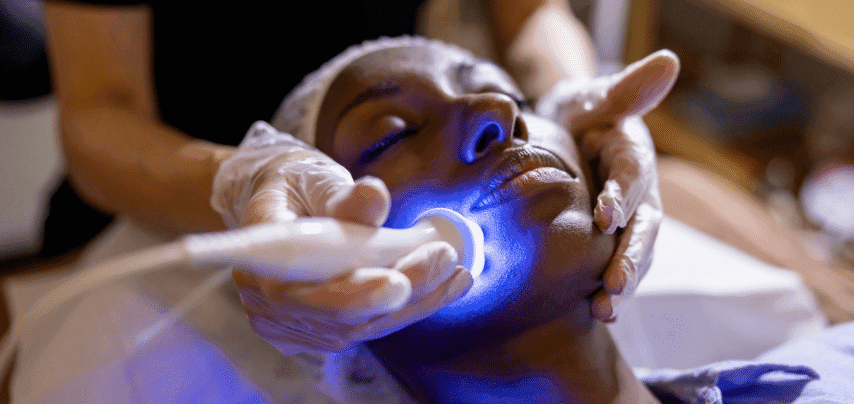By Will Marshall, Head of Legal and Risk Management
The surge in popularity of non-surgical aesthetic procedures like Botox and dermal fillers has sparked increased scrutiny of prescribing practices, particularly remote prescribing. In recent months, three of the UK’s key health regulators - the GMC, GPhC, and NMC - have issued updated guidance that effectively ends remote prescribing for cosmetic treatments in England and Wales. Here’s how the regulatory landscape has shifted and what it means for practitioners.
The GMC leads the way
The General Medical Council (GMC) has long opposed remote prescribing for cosmetic injectables. Since 2012, its guidance has required a face-to-face physical examination before any injectable is prescribed. This was formalised in Guidance for Doctors Who Offer Cosmetic Interventions (effective from 1 June 2016). Paragraph 11 states:
"You must carry out a physical examination of patients before prescribing injectable cosmetic medicines. You must not therefore prescribe these medicines by telephone, video link, online or at the request of others for patients you have not examined."
The GMC’s use of “must” indicates a legal or ethical duty - remote prescribing of cosmetic medicines is simply not permitted.
The GDC follows
The General Dental Council (GDC) followed suit in 2013, issuing guidance prohibiting remote prescribing for cosmetic injectables. While it made limited exceptions for essential dental treatments, it was explicit: these do not extend to non-surgical cosmetic procedures.
The GPhC weighs in
In 2019, the General Pharmaceutical Council (GPhC) introduced In practice: Guidance for pharmacist prescribers, reinforcing that pharmacist independent prescribers must assess patients face-to-face and should not prescribe non-surgical cosmetic medicines remotely.
Joint action: The Ten Principles
November 2019 also saw the publication of the High level principles for good practice in remote consultations and prescribing, a cross-regulatory initiative. It laid out ten safety-focused standards to ensure that remote prescribing was clinically appropriate and in the patient’s best interest.
The principles acknowledged that some categories of medicines were not suitable to be prescribed remotely, particularly where the services aren’t linked to a patient’s GP or regular healthcare provider.
The JCCP and the Licensing push
From 2019 to 2022, the Joint Council for Cosmetic Practitioners (JCCP) pushed hard to embed the face-to-face requirement. Its guidance banned remote or delegated prescribing of injectables and championed statutory licensing for aesthetic practitioners and premises - a goal partly realised under the Health & Care Act 2022.
On 13 December 2024, the GMC reaffirmed its ban as part of broader regulatory updates. In February 2025, the GPhC followed with stricter guidance for online pharmacy services, again stressing that high-risk medicines, including cosmetic ones, require thorough clinical assessment—not just an online form.
NMC joins the party
The Nursing and Midwifery Council (NMC) was the last major regulator to act, and arguably the most impactful. Its April 2025 guidance, effective from 1 June 2025, bans remote prescribing of medicines for non-surgical cosmetic procedures by nurse and midwife independent prescribers.
The NMC guidance covers initial consultations, top-ups, and repeat prescriptions. A qualified prescriber must now conduct an in-person consultation and assessment for each prescription. While nurse prescribers can still delegate administration to non-registered practitioners (e.g., beauty therapists), they remain professionally accountable for the entire treatment process.
Prescribers must ensure delegated practitioners are appropriately trained and that the treatment setting meets clinical standards. Delegation doesn’t shift responsibility, and if something goes wrong, the prescriber must intervene, especially when prescription-only treatments like Hyalase are needed to manage complications. This raises serious concerns about what happens when no prescriber is on-site in an emergency.
Conclusion
As the regulatory net tightens, one thing is clear: the days of remote prescribing for cosmetic interventions are over. All four major regulators now insist on in-person consultation and assessment as essential. These changes align with the long-awaited Aesthetic Licensing Scheme, which promises to bring minimum standards across the industry.
For prescribers, this means more hands-on involvement. For non-medical aesthetic practitioners, it demands closer oversight and clearer boundaries – and an increased layer of cost. For the public, it reflects a growing recognition that cosmetic treatments are healthcare interventions, and must be treated as such.
...
Our valued Altea associates, and AlteaPlus Essential members have received an expanded version of this content in the form of a detailed insight article.
Not an associate or member yet? Join now to enjoy full access to our extensive resources and more.
Interested in exploring more healthcare insights? Listen to our AlteaTalks podcast for expert-led discussions breaking down the latest developments and what they mean for practitioners, patients, and providers.
"The information contained in this article does not represent a complete analysis of the topics presented and is provided for information purposes only. It is not intended as legal advice and no responsibility can be accepted by Altea for any reliance placed upon it. Legal advice should always be obtained before applying any information to particular circumstances.




